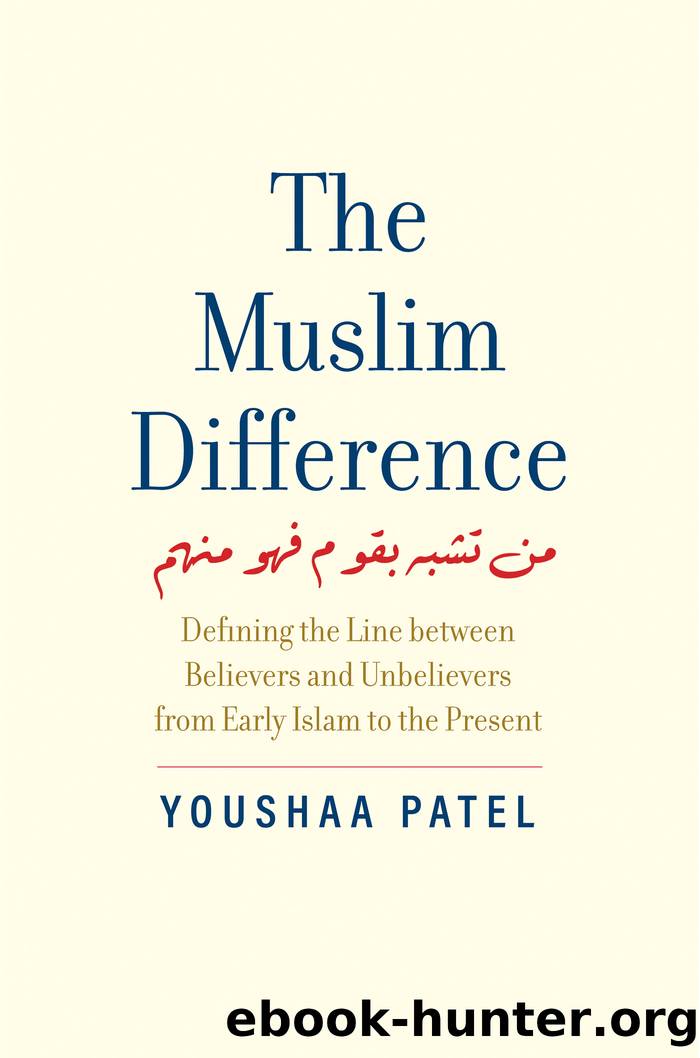The Muslim Difference by Youshaa Patel

Author:Youshaa Patel
Language: eng
Format: epub
Publisher: Yale University Press
Published: 2022-01-15T00:00:00+00:00
POEISIS
Buried deep within The Virtue of Awakening, in the section on imitating the devil under the subheading âDressing Like Someone Else to Disguise Oneâs Identity,â GhazzÄ« transmits a strange story about Satanâs attempt to impersonate Jesus.118 One day, Satan visits the home of an unsuspecting Christian monk. He knocks on the door and proclaims, âReceive me, for I am Jesus!â Skeptical that Jesus has returned to earth in this form, the monk tartly replies, âIf you are Jesus, then I have no need of you. Did you not command that we devote our time to worship, and did you not warn us to prepare for the Day of Judgment? Leave and take care of your affair.â Outwitted by the monk, who sees through his ruse, Satan departs.
In his commentary on the encounter, GhazzÄ« takes us from the magically real to the ordinaryâfrom an anecdote about satanic deception to the apparently unrelated task of debt collection. GhazzÄ« describes a scene where a debt collector visits the home of an insolvent debtor seeking to reclaim his money. The debt collector knocks on the door and the debtor asks, âWho is it?â The debt collector responds, âI am so and so,â changing his name in order to conceal his true identity. GhazzÄ« explains that the debt collector (and those who imitate him) commits a satanic deception by disguising his identity just to enrich himself at the expense of someone else. Here a reader may wonder: is GhazzÄ« taking aim at corrupt state-administered tax-collection practices?
While GhazzÄ« avoids mentioning actual events or people, he may nonetheless have obliquely delivered a sharp critique of widespread government corruption and exploitation. Although GhazzÄ« kept aloof from direct political activism, through his scholarship he creatively interprets the Islamic past to shape the contemporary moral and social well-being of the Muslim present, voicing his opinion on new cultural developments such as the consumption of pleasure-inducing substancesâcoffee, tobacco, and cannabis.
But GhazzÄ«âs quest to restore order amid crisis and corruption did not turn him into a curmudgeon whose view of Islamic orthodoxy was limited to stark oppositions between lawful and prohibited. GhazzÄ«âs normative commitment to the letter of the law was balanced by his Sufi sensibilities, which remained bound to the spirit of the law. Although he remained within the boundaries of orthodox Sunni Islam, and the ShÄfiÊ¿Ä« madhhab in particular, he also had to consider scenarios when orthodoxy broke down, such as the limit case of the disobedient Muslim who loves God, where outward appearances fail to reflect inner truth. At such moments, formal legal reasoning gives way to poeisis, what Ebrahim Moosa describes as âthe craft of imagination and inventive making and creating.â119 By means of this âmaking,â GhazzÄ«âs mind crossed vast historical and discursive horizons: past and present, legal and mystical, imagined and real. Although GhazzÄ«âs nuanced discourses on mimesis and coffee cannot be easily summarized, we may nonetheless conclude that, on the whole, they bend toward expansion and inclusion, not restriction and exclusion.
GhazzÄ«âs poeisis is most clearly expressed through his poetry.
Download
This site does not store any files on its server. We only index and link to content provided by other sites. Please contact the content providers to delete copyright contents if any and email us, we'll remove relevant links or contents immediately.
| Hadith | History |
| Law | Mecca |
| Muhammed | Quran |
| Rituals & Practice | Shi'ism |
| Sufism | Sunnism |
| Theology | Women in Islam |
The History of Jihad: From Muhammad to ISIS by Spencer Robert(2622)
Nine Parts of Desire by Geraldine Brooks(2361)
The Turkish Psychedelic Explosion by Daniel Spicer(2355)
The First Muslim The Story of Muhammad by Lesley Hazleton(2268)
The Essential Rumi by Coleman Barks(2043)
1453 by Roger Crowley(2024)
The Last Mughal by William Dalrymple(1855)
Trickster Travels: A Sixteenth-Century Muslim Between Worlds by Davis Natalie Zemon(1847)
Muhammad: His Life Based on the Earliest Sources by Martin Lings(1644)
God by Aslan Reza(1639)
by Christianity & Islam(1629)
A Concise History of Sunnis and Shi'is by John McHugo(1567)
No God But God by Reza Aslan(1541)
Magic and Divination in Early Islam by Emilie Savage-Smith;(1533)
The Flight of the Intellectuals by Berman Paul(1502)
Nothing to Envy by Barbara Demick(1445)
Art of Betrayal by Gordon Corera(1429)
What the Qur'an Meant by Garry Wills(1391)
Getting Jesus Right: How Muslims Get Jesus and Islam Wrong by James A Beverley & Craig A Evans(1340)
